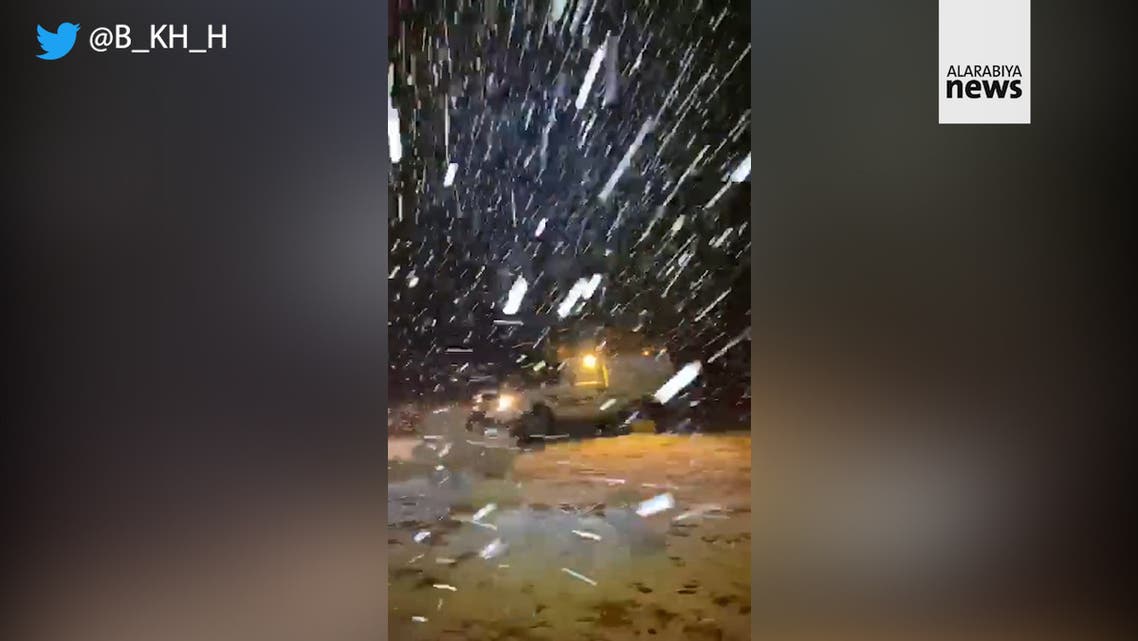Saudi Arabia’s Tabuk begins to see snowfall as Kingdom expects weekend thunderstorms
 Heavy snow falls on areas in Tabuk region, northwest of Saudi Arabia. (Photo courtesy: Bandar al-Howas)
Heavy snow falls on areas in Tabuk region, northwest of Saudi Arabia. (Photo courtesy: Bandar al-Howas)Residents and visitors have begun flocking to the northwestern city of Tabuk in Saudi Arabia which began to experience snowfall in the early hours of Thursday, with much more expected over the weekend.
Authorities in Saudi Arabia have been issuing weather warnings for several regions across the Kingdom for this weekend, warning that some regions are expected to experience heavy thunderstorms accompanied by strong wings and floors.
The Kingdom’s civil defense warned of thunderstorms with extreme weather conditions to affect Saudi Arabia’s capital Riyadh, Mecca, Medina, the Eastern Province, Qassim, Tabuk, Hail, the Northern Borders Province, Asir, al-Baha, Jazan, Najran and Jawf.
Snow blanketed parts of the Kingdom’s northern cities earlier last month. The last time the Kingdom experienced as much snowfall came in 2018, when locals and tourists took to fun snow activities like riding sleighs and snowball fights.
Speaking from the Alqan Mountains of Tabuk region, Al Arabiya’s correspondent Sultan al-Solami interviewed several of the city’s residents as well as special guests who drove all the way from the United Arab Emirates to photograph the first snowfall.
Al Arabiya correspondent Sultan al-Solami reports from Alqan Mountains of Tabuk region which saw snow begin to fall early on Thursday. (Al Arabiya)
“We drove all the way from the UAE as we anticipate this snowfall in Tabuk nearly every year since it first began to receive snowfall each January,” one Emirati avid photographer told Al Arabiya.
“We’ve set up camp and are expecting more people to take advantage of the outdoors and open nature, especially tonight as we expect to see the first snow fall on the mountain,” he added.
Read more:


